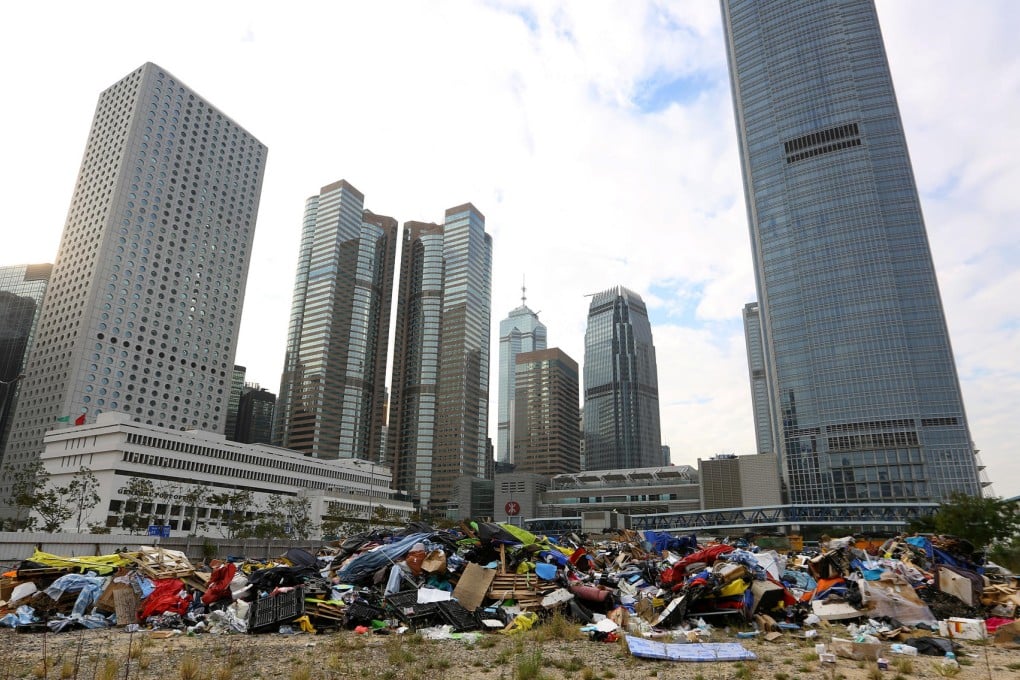'Small fixes' not enough to solve Hong Kong's big problems, says Beijing adviser
Leading adviser to Beijing says 'comprehensive treatment' needed to cure Hong Kong's ills - but protest leaders say more action is likely

A top adviser to Beijing on Hong Kong affairs yesterday said the city's problems needed "a comprehensive treatment" rather than "small fixes and patches" after the main Occupy Central camp in Admiralty was cleared.
And Chen Zuoer , who heads a high-level think tank created last year to study the city's development, said supplies for the protest camps "worth at least HK$200 to HK$300 million" came from an American organisation "hidden" in a local university. Government figures have long said "external forces" were supporting Occupy, a claim protest leaders vehemently deny.
Chen, a former deputy director of the State Council's Hong Kong and Macau Affairs Office and now chairman of the Chinese Association of Hong Kong and Macau Studies, is the highest profile mainland figure to speak out since the clearance. His remarks, 24 hours after the clearance, came as protesters warned of more actions, which could grow increasingly radical if the desire for equal and universal suffrage was not met.
"All the parties including the opposing party, the 'love the country, love Hong Kong' forces, and all sectors of society have shown their muscle [over Occupy]." This was "a good thing, as it is good for a big treatment to correct the chaos and restore peace. It is not a small fix and patch."
A spokesman for the Hong Kong and Macau Affairs Office meanwhile called for "rational and pragmatic" discussion of the city's political future.
"We hope that Hong Kong's society will … build consensus about its political development within the boundaries of the Basic Law and decisions adopted by the Standing Committee of the National People's Congress," he said. Beijing's framework for the 2017 chief executive election - under which a 1,200-strong committee would pick two or three candidates for the public to choose from - should be followed, the spokesman added.
But leading pro-democracy figures said more protests were likely as the government rolled out a second round of consultation on reform and the reform package was put to the Legislative Council, where pan-democrats have threatened to veto it.